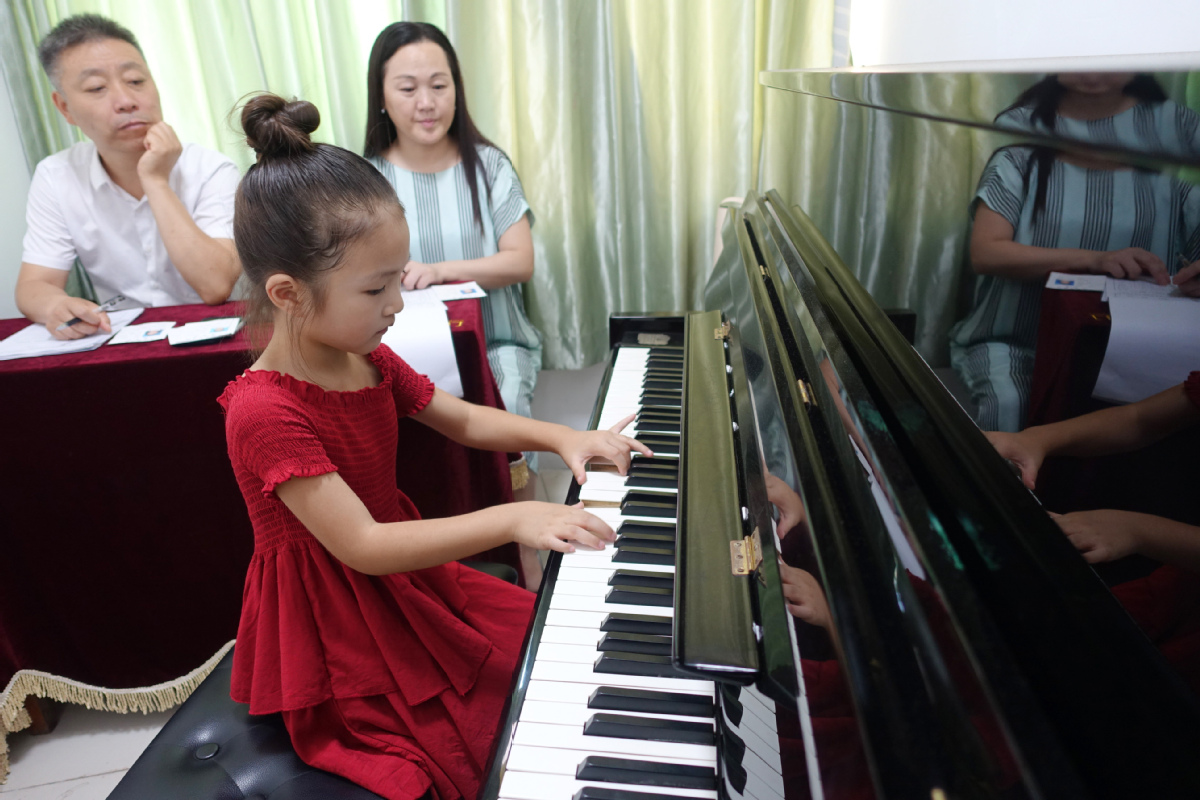Parents see piano as a key to unlock success


Motivation
In the 1990s, Zhou Haihong, then deputy director of the Central Conservatory of Music in Beijing, conducted a survey of 1,000 parents. Almost all said they sent their children to learn piano because they believed it could boost intellectual development and cultivate a good temperament.
As a professor at a leading music school, Zhou said his research provided no conclusive evidence for the commonly held belief that "there is a correlation between playing the piano and children's intellectual development".
However, almost three decades later, Liao Yi, a voice and music teacher at an arts training center in Beijing, still finds that parents' obsessions with improving their children's mental abilities play a key role in their desire to get them on board with the expensive and time-consuming project.
Having lived with the piano since age 7 and made the instrument part of her professional life, the 37-year-old often receives invitations from parents to teach their children.
"When I ask them why they want their kid to learn piano and whether the child likes it, they say they have no idea but they have heard that practicing the piano is helpful for children's development," Liao said.
Liu Bingru signed her daughter up for piano courses two years ago, partly because the then 6-year-old primary school student was "bad at math, especially arithmetic".
"I had heard that playing the piano might be of some help as it can train children's brains by exercising their fingers," Liu said.
Now, two years later, she is delighted to find that the child's playing and math skills are both improving.
"One unexpected outcome is that whenever she encounters a difficult math problem, I can guide her to think by way of the piano keys," she said.
"By counting numbers like counting musical scales, she can quickly figure out the answer."
Guo's childhood experience was very similar-her extracurricular options were chess or the piano. While her real passion lay in the former, her mother chose the latter on her behalf.
"She believed that playing the piano was elegant and more suitable for girls," Guo said.
"Also, she wanted me to master a practical skill in case I couldn't find a decent job when I grew up. If that happened, she thought that at least I would still be able to make a living by teaching others."


















